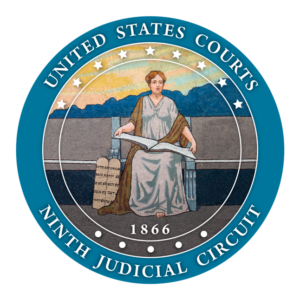 By Eden E. Anderson, Gerald L. Maatman, Jr., and Jennifer A. Riley
By Eden E. Anderson, Gerald L. Maatman, Jr., and Jennifer A. Riley
Duane Morris Takeaways: On February 12, 2024, the Ninth Circuit issued its opinion in Johnson v. Lowe’s Home Centers, LLC, No. 22-16486 (9th Cir. Feb. 12, 2024). It held that federal courts must follow the statutory standing analysis of the California Supreme Court in Adolph v. Uber Technologies, Inc., and not the U.S. Supreme Court’s different interpretation in Viking River Cruises, Inc. v. Moriana. Additionally, in his concurrence, Judge Kenneth Lee opined that issues decided in individual arbitration of a PAGA claim should not have preclusive effect on the bigger non-individual PAGA claim.
Case Background
The plaintiff in Johnson alleged PAGA claims against her former employer based on the employer’s alleged violations of the California Labor Code. Applying all aspects of the U.S. Supreme Court’s decision in Viking River Cruises, Inc. v. Moriana, the district court compelled Johnson’s individual PAGA claims to arbitration and dismissed her non-individual PAGA claims for lack of statutory standing. While the case was on appeal, the California Supreme Court issued its decision in Adolph v. Uber Technologies, Inc., which held that a PAGA plaintiff retains standing to maintain non-individual PAGA claims even after their individual PAGA claims are compelled to arbitration.
At issue on appeal in Johnson v. Lowe’s Home Centers, LLC was whether the non-individual PAGA claims should have been dismissed.
The Ninth Circuit’s Decision
The Ninth Circuit held that federal courts must follow the statutory standing analysis of the California Supreme Court in Adolph, and not the U.S. Supreme Court’s different interpretation in Viking River. It thus vacated the ruling dismissing the non-individual PAGA claims and remanded the case to the district court to apply Adolph.
The Johnson decision is of further interest because of the concurring opinion of Judge Kenneth Lee. His concurrence addressed the next big question in PAGA cases, i.e., the extent to which issues decided by the arbitrator in resolving individual PAGA claims will be binding in court in the litigation of the non-individual PAGA claims. Judge Lee noted that individual arbitration is often “low-stakes” for companies, who sometimes even send non-lawyers, such as paralegals, to arbitration proceedings because the amount at issue is not worth a lawyer’s higher hourly rates. However, as Judge Lee noted, if legal conclusions or factual findings in individual arbitration are binding, then companies would have little choice but to bring in the “legal cavalry” and devote substantial resources in individual arbitration, which would undermineg the efficiency of those proceedings, which is the whole “point” of enforcing arbitration agreements according to their terms. Judge Lee reasoned that there is thus a “lurking tension” between the FAA and the suggestion in Adolph that issue preclusion can apply to the outcome of arbitration of an individual PAGA action. Judge Lee expressed his view that application of issue preclusion in this context would contravene the FAA.
Implications For Employers
Whether in state or federal court in a PAGA action, the Ninth Circuit made clear that Adolph must be applied. The concurring opinion in Johnson provides employers facing adverse rulings in individual arbitration with good arguments against the application of issue preclusion in the non-individual PAGA claim proceedings.
